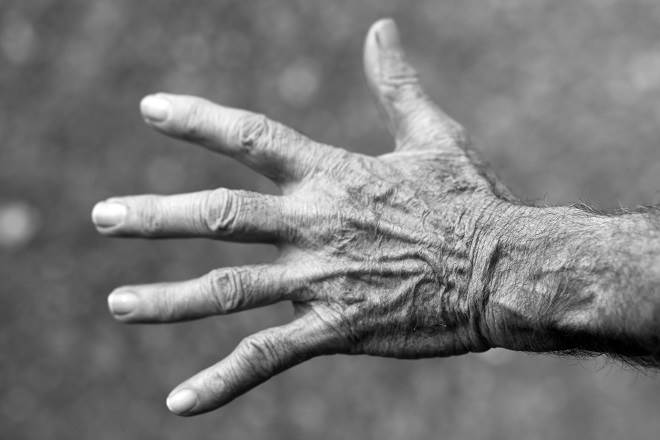What Causes Rheumatoid Arthritis?
When the body’s immune system, meant for protecting the body from foreign bacteria and viruses, attacks the parts of the body itself, it results in an inflammation of the tissues in the area. The condition mostly affects the joints and is known as Rheumatoid Arthritis. The inflammation in the tissues thicken the insides of the joints, resulting in pain and swelling in the area. The condition, however, is an autoimmune one, but is left unchecked, can damage cartilage as well as the bones around the joints.

What are the causes of Rheumatoid Arthritis?
The disease affects your body when the immune system acts against your own body and causes the inflammation of the tissues around your joints. The inflammation happens due to the thickening of synovium, the lining of the membrane surrounding your joints. The synovium tissue is responsible for creating a fluid that lubricates the joints and helps in their smooth movements. The thickened synovium thus, damages the tissue and causes it to swell resulting in severe pain in the area.
If not paid heed to, the diseases can eventually destroy cartilage, the elastic tissue covering the end of the bones in a joint, as well as the bones within the joint. This happens because the tendons and ligaments holding the joint together weaken over time and resultantly stretch causing the joint to lose its shape and alignment. It’s one of the major rheumatoid arthritis causes.
The exact causes of rheumatoid arthritis, however, have not been identified yet. The disease has been researched for a while now, and the most common issue seems to be the genetic structure of a person. The genes, though, may not actually be the cause of the arthritis but may give you a weak immune system. The weaker immune system thus, can make you more susceptible to viruses, bacteria, fungi, etc. and therefore, could cause rheumatoid arthritis.
Are there foods that cause arthritis?
Though there are certainly foods that can cause arthritis flare ups, there aren’t foods that are proven to have direct links to causing arthritis. There are, however, certainly foods you should avoid if you have arthritis. The foods you should avoid when you have rheumatoid arthritis contain sugar, saturated fats, trans fats, omega 3 fatty acids, refined carbohydrates MSG, and gluten.
What are symptoms of rheumatoid arthritis?
There are many risk factors that could cause you the disease in the future. The risk factors are: - Gender: According to research, women are more likely to develop rheumatoid arthritis than men. - Age: People are more likely to have this disease between the ages of 40 and 60, however, it can happen at any age. - Smoking: Cigarette smoking weakens the immune system of the body and thus, makes it more vulnerable to the disease. The risk factors are higher if one has a genetic predisposition for developing the disease. - Family history: The genetics are one of the causes involved in the disease and thus, if someone in your family has suffered from rheumatoid arthritis, you may too. - Obesity: Overweight or obese people are more likely to develop rheumatoid arthritis. Obese women of the age 55 or younger have been known to develop rheumatoid arthritis. - Environmental exposure: Exposure to different forms of fungi or viruses, like asbestos or silica has been known to increase the risk of rheumatoid arthritis.
Treatment for Rheumatoid Arthritis
A cure for Rheumatoid Arthritis hasn’t been found yet. But it has been discovered that the condition seems to subside when treatment is started early on with disease-modifying anti-rheumatic drugs known as DMARDs. Apart from this, anti-inflammatory drugs like NSAIDs and steroids can also be given to relieve pain and reduce inflammation.
If medication doesn’t seem to alieve the situation, the doctor may also suggest surgical options like synovectomy, tendon repair, joint fusion, and joint replacement to relieve pain and help you to use your joints better.
DISCLAIMER: The advice suggested in this article is not a substitute for actual medical treatment. Readers who are dealing with more severe symptoms of this disease should consult with a medical professional.




